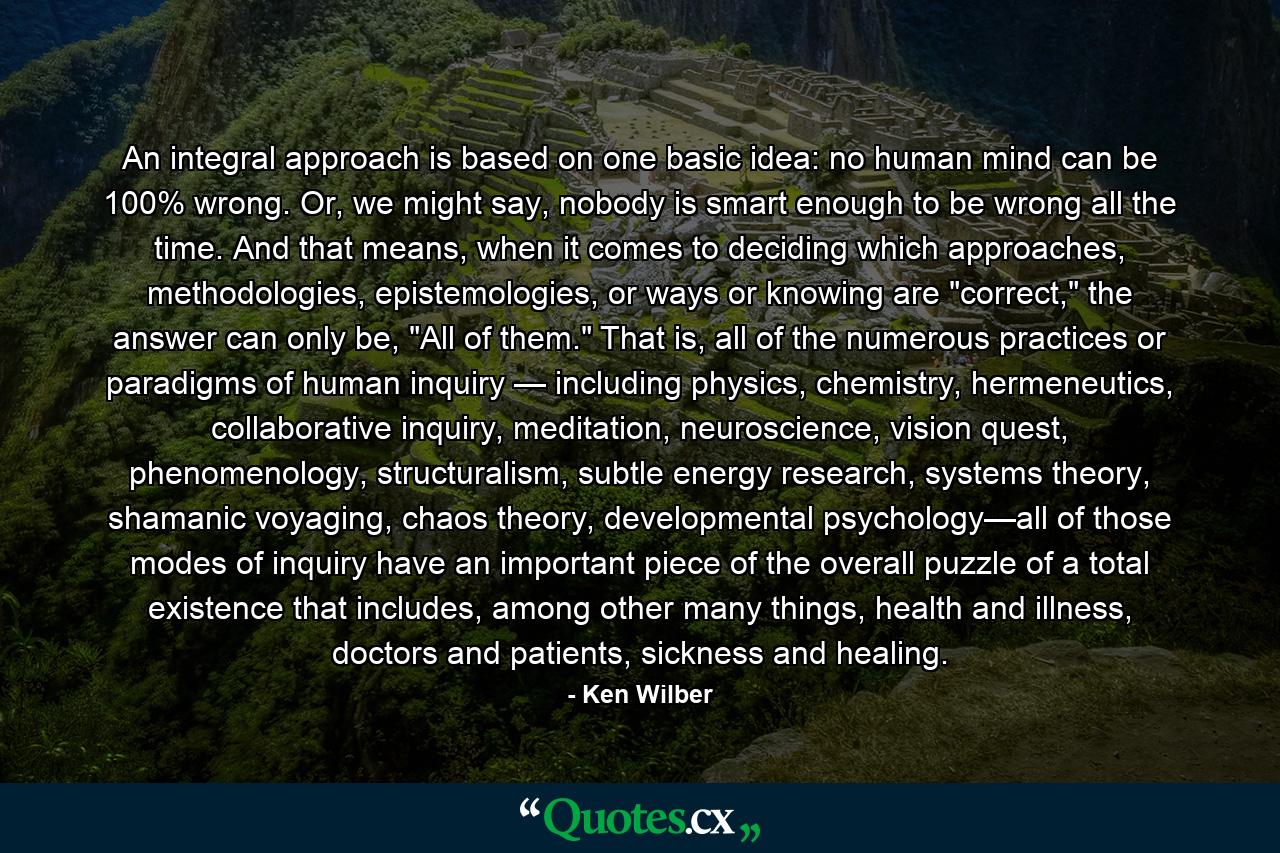An integral approach is based on one basic idea: no human mind can be 100% wrong. Or, we might say, nobody is smart enough to be wrong all the time. And that means, when it comes to deciding which approaches, methodologies, epistemologies, or ways or knowing are “correct,” the answer can only be, “All of them.” That is, all of the numerous practices or paradigms of human inquiry — including physics, chemistry, hermeneutics, collaborative inquiry, meditation, neuroscience, vision quest, phenomenology, structuralism, subtle energy research, systems theory, shamanic voyaging, chaos theory, developmental psychology—all of those modes of inquiry have an important piece of the overall puzzle of a total existence that includes, among other many things, health and illness, doctors and patients, sickness and healing.
